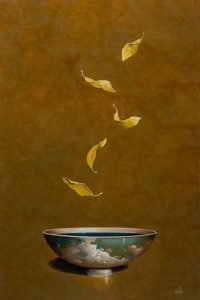 The Yogabliss, Your Heart Life on-line Moving into Meditation classes met this morning. Today we explored how and where we place our attention. We explored mindfulness through body awareness and slow movement. Teachers, writers and poets helped us to contemplate the incredible value of loving awareness and compassionate presence.
The Yogabliss, Your Heart Life on-line Moving into Meditation classes met this morning. Today we explored how and where we place our attention. We explored mindfulness through body awareness and slow movement. Teachers, writers and poets helped us to contemplate the incredible value of loving awareness and compassionate presence.
We drew inspiration from Michael Stone’s book, The World Comes to You. Michael was a prominent Buddhist teacher and yogi, psychotherapist and writer. I discovered him through his book, Yoga for a World Out of Balance. Michael taught mindfulness as compassionate action. He continues to be a great teacher for me. You can find a wonderful archive of his talks, videos and books curated by his spouse, Carina Stone and his students at michaelstoneteaching.com. In today’s reading Michael describes mindfulness. He reminds readers that “When you can really meet conditions as they arise, you are practicing non-harm. You’re practicing creativity.” Yes! Mindfulness as Creativity!
We heard Erin Rabke’s poem, Permission Granted. These few lines are powerful encouragement to slow down, “shed the skin of urgency” and savor the life we’ve been given. I discovered this poem in one of Erin’s newsletters. She is cofounder of Embodiment Matters. Erin has studied and taught embodied movement practices of more 25 years. Erin is a gifted writer. She is also a facilitator for Joanna Macy’s Work That Reconnects.
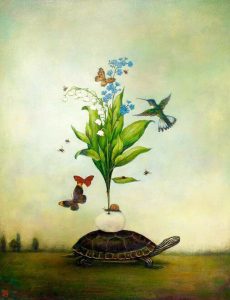 We drew from the tenth chapter of Kathleen Dowling Singh’s book, The Grace in Aging: Awaken As You Grow Older. In this section, Commitment: Liberation from Deception, Kathleen focuses on the precious gift of our attention. She reminds us that “we’re here to learn from each other. . . . We’re here to share with each other, to comfort and be comforted, to be present with each other.”
We drew from the tenth chapter of Kathleen Dowling Singh’s book, The Grace in Aging: Awaken As You Grow Older. In this section, Commitment: Liberation from Deception, Kathleen focuses on the precious gift of our attention. She reminds us that “we’re here to learn from each other. . . . We’re here to share with each other, to comfort and be comforted, to be present with each other.”
We also received guidance from Robin Wall Kimmerer’s beautiful essay, Returning the Gift. Robin is a “mother, scientist, decorated professor, and enrolled member of the Citizen Potawatomi Nation. She is the author of Braiding Sweetgrass: Indigenous Wisdom, Scientific Knowledge and the Teachings of Plants.” In today’s reading, Robin describes the reciprocal nature of attention: what we give and receive from our natural world.
Relaxed Reflection
Welcome. Give yourself a few moments to get here. Welcome those parts of you that may be a bit scattered. One by one draw them home to your awareness. In his invitation to practice, meditation teacher Michael Stone writes:
The practice of mindfulness meditation is a practice of coming home. It’s a practice of arriving. . . .Let’s say our practice right now will be creative engagement with each moment as it is.
I invite you to feel and sense Body expressing: perhaps as relaxation or tension, hardness or softness, subtle currents of energy, warm pulsations or buzzy vibrations. Notice whatever you can. Be with whatever you can.
As you let yourself be, see if you can let the breath come to you. If being mindful of breathing is uncomfortable you might notice how sound or sensation come to you. Sometimes when thinking about the breath it feels like you’re doing. It can take a little time to let the doing sense settle down too.
Every now and then relax whatever you can. You might savor the feeling of ease as you become aware of it in an area of your body. Sense your legs and feet, around and within your pelvis, your low back and belly, your upper back, shoulders, arms and hands, the area around your heart, your neck and head. Feel free to adjust your posture to ease any tension.
Michael reminds us
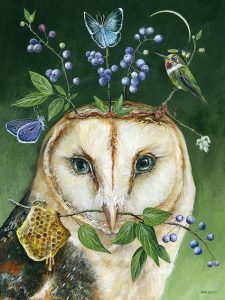 This practice is about the loving response that happens naturally when we’re not stressed, or highly reactive . . . Practice sings when we’re about to stay with the truth of what’s happening in our experience. . . . I like to call this situational ethics. Situational ethics means having the ability or creativity present, as a wellspring, to meet any situation: to be able to drop your fused view at any time. . . . When you can really meet conditions as they arise, you are practicing non-harm. You’re practicing creativity.
This practice is about the loving response that happens naturally when we’re not stressed, or highly reactive . . . Practice sings when we’re about to stay with the truth of what’s happening in our experience. . . . I like to call this situational ethics. Situational ethics means having the ability or creativity present, as a wellspring, to meet any situation: to be able to drop your fused view at any time. . . . When you can really meet conditions as they arise, you are practicing non-harm. You’re practicing creativity.
Your Body may take a deeper breath now and then or it might swallow. Can you allow experience and sensation, thought and sound appear in your awareness? Perhaps poignant memories, joys and pains spontaneously arise and subside. You can notice how they change as continuous waves of experience.
Experience is always now, the ever present. In moments of awe, as music moves through the heart, we are present. When aware of life’s poignancy, we are tenderly drawn to feeling. The unknown arises and we see life revealing itself. We may entrust ourselves to the ever present, to the mystery. Poet Erin Rabke writes:
Permission granted:
Go as slowly as you like.
Shed the skin of urgency.
Savor full soft bellied breaths.
Pause to gaze at the sky and remember
yourself that vast.
It’s all passing. Nothing lasts.
Pay reverent attention.
May we not miss the gifts abundantly given.
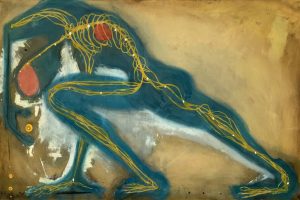 Let’s come back to slowness. You can go as slowly as you like. You can savor. Perhaps you might discover how really tired you are underneath all the doing – all the work of being a self. We are living with ongoing stress and many difficulties beyond our control. Can you “shed the skin of urgency?” What is it like to let go if just for a little while?
Let’s come back to slowness. You can go as slowly as you like. You can savor. Perhaps you might discover how really tired you are underneath all the doing – all the work of being a self. We are living with ongoing stress and many difficulties beyond our control. Can you “shed the skin of urgency?” What is it like to let go if just for a little while?
Body tells us the truth, and then another truth, and then another one. We feel our way through the ever-changing world. We bring loving awareness to everything we know and everything we don’t know. When we lose ourselves – in anger, in fear, in grief, in joy, we can always come home: Body feeling, looking, touching and loving. Right now you might gently curl and uncurl your fingers. Feel how precious these hands! Or moisten your lips with the tip of your tongue. Slowly roll your head to one side and then the other.
Meditation teacher Kathleen Dowling Singh writes about what happens when:
. . . [w]e transform from the victim of what is happening to the observer of what is happening. This is the beginning of the cessation of taking everything personally.
We let go more, release more, shedding the unreal and the inessential. We ride the waves of whatever is arising with increasing ease. . . .
Recognizing that our experience is utterly dependent upon where we place our attention, we begin to shape a life filled with more love, harmony, beauty, generosity. . . . We can completely transform the way we relate to each moment of this life in form.
Our experience utterly depends “upon where we place our attention” and how we choose to offer our attention. I invite you to take a moment and reflect on where you place your attention. How is it shaping your life?
Ecologist Robin Wall Kimmerer writes:
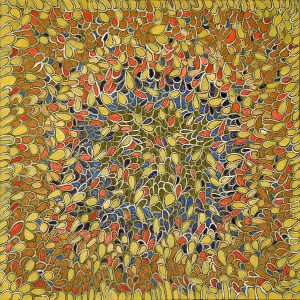 Paying attention is a form of reciprocity with the living world, receiving the gifts with open eyes and open heart. . . . Even a wounded world is feeding us. Even a wounded world holds us, giving us moments of wonder and joy. I choose joy over despair. Not because I have my head in the sand, but because joy is what the earth gives me daily and I must return the gift.
Paying attention is a form of reciprocity with the living world, receiving the gifts with open eyes and open heart. . . . Even a wounded world is feeding us. Even a wounded world holds us, giving us moments of wonder and joy. I choose joy over despair. Not because I have my head in the sand, but because joy is what the earth gives me daily and I must return the gift.
Perhaps you are similarly drawn to give and receive – to experience the reciprocity that animates all of nature. We are not separate. We are not alone. In our mindfulness practice – we can realize this truth – we inter-connect, we inter-depend – we are life unfolding.
Kathleen writes:
The gift of our attention . . . . is one of the most precious things we have to offer each other. . . . We’re here to learn from each other. The capacity to share both joy and sorrow laughter and anguish . . . We’re here to share with each other, to comfort and be comforted to be present with each other as we arise from the sleep of ignorance.
And here we are, today, giving the gift of our attention, learning and sharing. We pry our hearts open every time they close. One breath follows another in and out of our Body home. Perhaps this is why we are here. Kathleen writes:
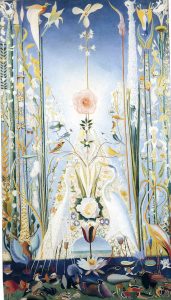 Mindful of each breath, in as much as we remember, our remembrance will grow. Mindful of each breath, we increase our capacity to show up in our lives, to be present for what is essential.
Mindful of each breath, in as much as we remember, our remembrance will grow. Mindful of each breath, we increase our capacity to show up in our lives, to be present for what is essential.
We will come to know that there is nowhere to go except more deeply into tender communion with all that is, where lives and deaths are inhaled and exhaled in breaths without number.
This is wholeheartedness of presence, arisen from commitment, the gift of attention that we give to ourselves and the world. . . . We live in interbeing, wishing each other awakening

